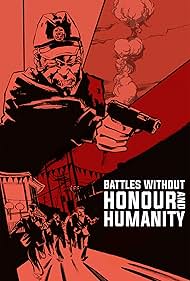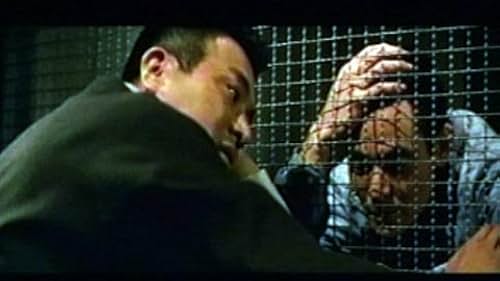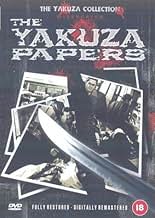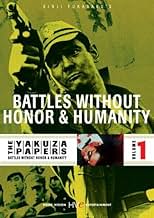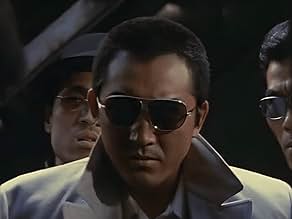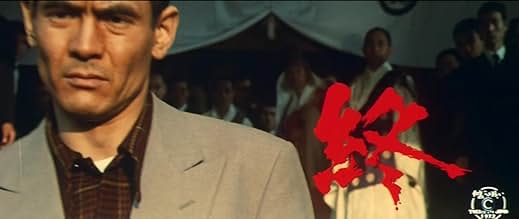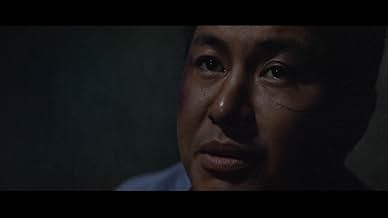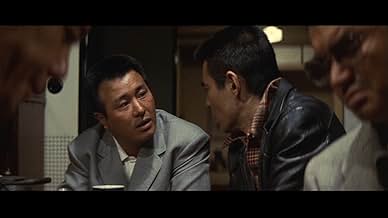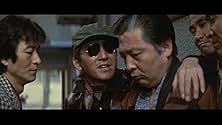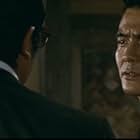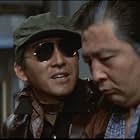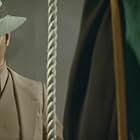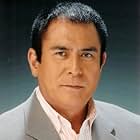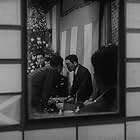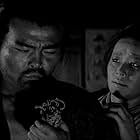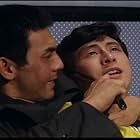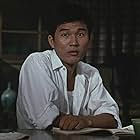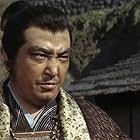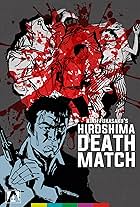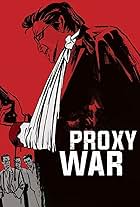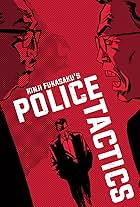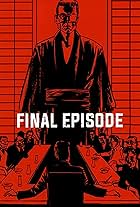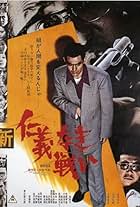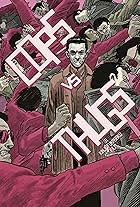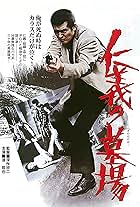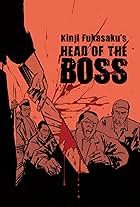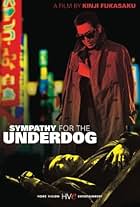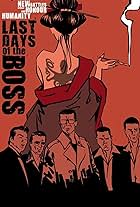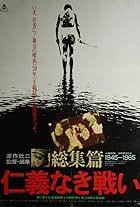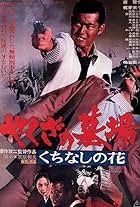IMDb RATING
7.4/10
4.5K
YOUR RATING
During the violent chaos of post-War Japanese black market, a young gangster called Shozo Hirono has to keep up with the rapid shifts of power between unscrupulous bosses.During the violent chaos of post-War Japanese black market, a young gangster called Shozo Hirono has to keep up with the rapid shifts of power between unscrupulous bosses.During the violent chaos of post-War Japanese black market, a young gangster called Shozo Hirono has to keep up with the rapid shifts of power between unscrupulous bosses.
- Awards
- 3 wins total
- Director
- Writers
- All cast & crew
- Production, box office & more at IMDbPro
Storyline
Did you know
- TriviaJINGINAKI TATAKAI series. #1 of 9 films.
- GoofsIn the first film, US military police show up on the scene in a jeep with "MILITALY POLICE" painted under the windshield.
- ConnectionsEdited into Battles Without Honor and Humanity: The Complete Saga (1980)
Featured review
I don't get what's with those people who think "Battles Without Honor Or Humanity" has something to do with "The Godfather". The only notable similarity is that both delve into the criminal underworlds. But so what ? "The Godfather" didn't invent this genre. Furthermore the story in "Battles" was adapted from newspaper articles describing various yakuza activities. What Kinji Fukasaku created is a brilliant, violent tale about the dark and unforgiving nature of the Japanese crime syndicates it is also a story about friendship and betrayal.
This is a tale about a group of young men who after the end of the Second World War find themselves outcasts from society, under pursuit by the authorities. They inevitably bond together and form a new crime syndicate under the leadership of boss Yamamoto. As their organization grows in power so do the internal struggles between them begin to escalate. Slowly, either from pure greed and the corruption of power or by Yamamoto's careful manipulations. It's hard not to draw comparison with "Battle Royale" Fukusako's most notable film released in the late nineties. Both present a similar in a way situation: friends fight friends for their own survival.The only difference being that here that is done in a much more subtle way. But the elements are still the same, characters are likable well fleshed-out and the viewer is thrown into an internal struggle of his own when he sees them killing each other. Fukasaku's type of narration is one that involves multiple points of view, we don't have such a strong focus on main character as most movies do, there is one of course Shozo Hirono (played by the ever great Bunta Sugawara) but he serves the role of executing the movie's catharsis, he is the one who becomes a witness to all the madness and senseless killings and it is his final actions that define that, his realization and his rebellion to it all, his final display of grief to friends lost for nothing.
The acting is superb on all fronts, with a diverse cast of characters who offer a different perspective with their own point of view. Fukasaku demonstrates his great skill as a director, his technique perfectly fitting to the movie's tone. By using a fast-paced, erratic, nearly chaotic style the action scenes offer us that taste of brutality we wouldn't have felt had they been directed in a more traditional manner. Fukasaku strays from the established formula of people getting killed fast and easy with one or two bullets instead he shows us an alternative to that : a slow, painful exercise, one that more accurately portrays the yakuza's violent lifestyle. Yet there are no large body counts, the battles are often predetermined with one side attacking an individual or small group from the other, by surprise and in overwhelming force. There really is no honor in the Japanese underworld.
"Battles Without Honor Or Humanity" is the epitome of humanity's own self-destructive nature. The one that drives us to aim for a higher financial and social standing on any means. With no regard for friends, family, honor or trust.
This is a tale about a group of young men who after the end of the Second World War find themselves outcasts from society, under pursuit by the authorities. They inevitably bond together and form a new crime syndicate under the leadership of boss Yamamoto. As their organization grows in power so do the internal struggles between them begin to escalate. Slowly, either from pure greed and the corruption of power or by Yamamoto's careful manipulations. It's hard not to draw comparison with "Battle Royale" Fukusako's most notable film released in the late nineties. Both present a similar in a way situation: friends fight friends for their own survival.The only difference being that here that is done in a much more subtle way. But the elements are still the same, characters are likable well fleshed-out and the viewer is thrown into an internal struggle of his own when he sees them killing each other. Fukasaku's type of narration is one that involves multiple points of view, we don't have such a strong focus on main character as most movies do, there is one of course Shozo Hirono (played by the ever great Bunta Sugawara) but he serves the role of executing the movie's catharsis, he is the one who becomes a witness to all the madness and senseless killings and it is his final actions that define that, his realization and his rebellion to it all, his final display of grief to friends lost for nothing.
The acting is superb on all fronts, with a diverse cast of characters who offer a different perspective with their own point of view. Fukasaku demonstrates his great skill as a director, his technique perfectly fitting to the movie's tone. By using a fast-paced, erratic, nearly chaotic style the action scenes offer us that taste of brutality we wouldn't have felt had they been directed in a more traditional manner. Fukasaku strays from the established formula of people getting killed fast and easy with one or two bullets instead he shows us an alternative to that : a slow, painful exercise, one that more accurately portrays the yakuza's violent lifestyle. Yet there are no large body counts, the battles are often predetermined with one side attacking an individual or small group from the other, by surprise and in overwhelming force. There really is no honor in the Japanese underworld.
"Battles Without Honor Or Humanity" is the epitome of humanity's own self-destructive nature. The one that drives us to aim for a higher financial and social standing on any means. With no regard for friends, family, honor or trust.
- How long is Battles Without Honor and Humanity?Powered by Alexa
Details
- Release date
- Country of origin
- Language
- Also known as
- The Yakuza Papers, Vol. 1: Battles Without Honor and Humanity
- Production company
- See more company credits at IMDbPro
- Runtime1 hour 39 minutes
- Sound mix
- Aspect ratio
- 2.35 : 1
Contribute to this page
Suggest an edit or add missing content

Top Gap
What is the French language plot outline for Battles Without Honor and Humanity (1973)?
Answer